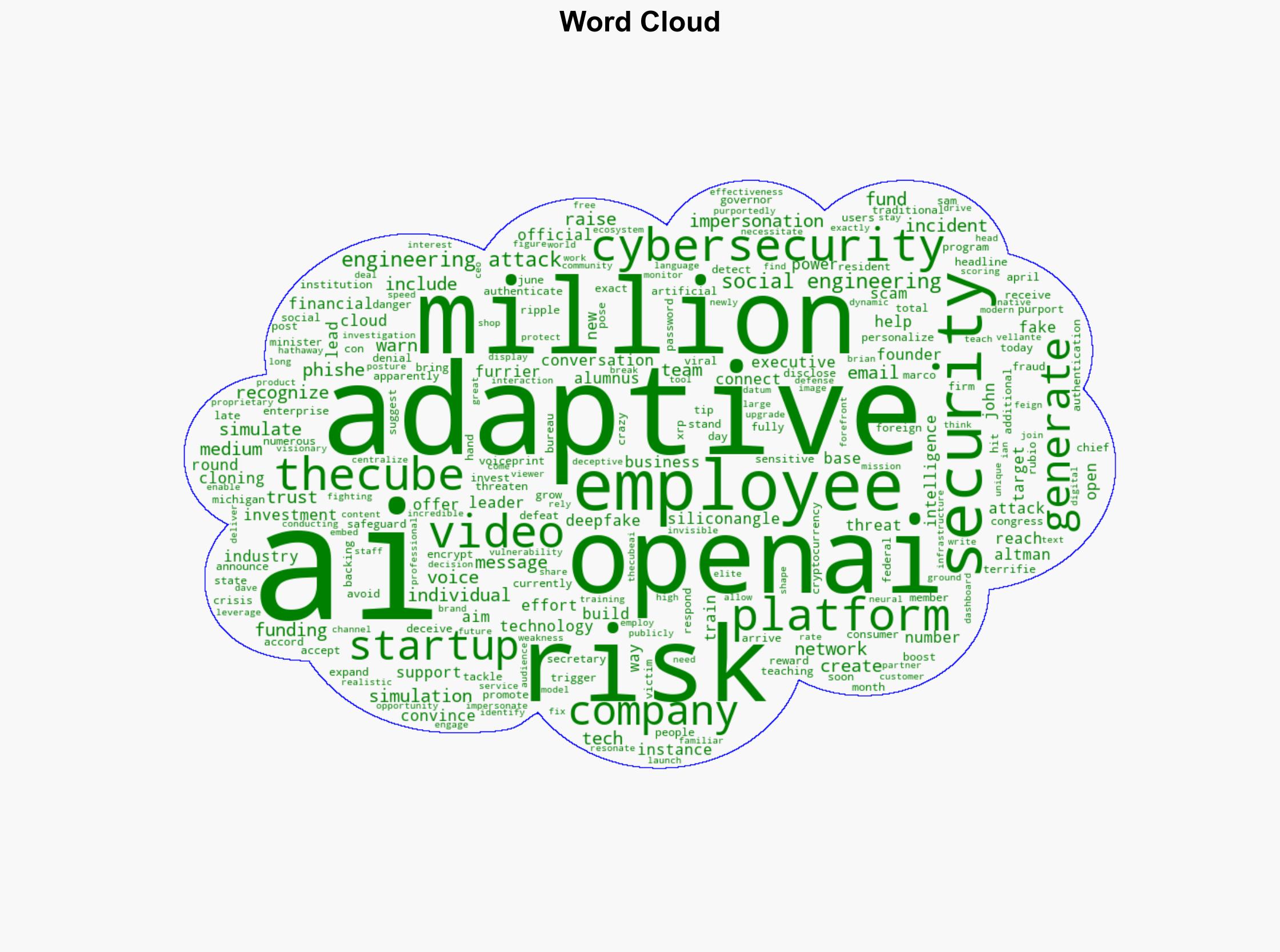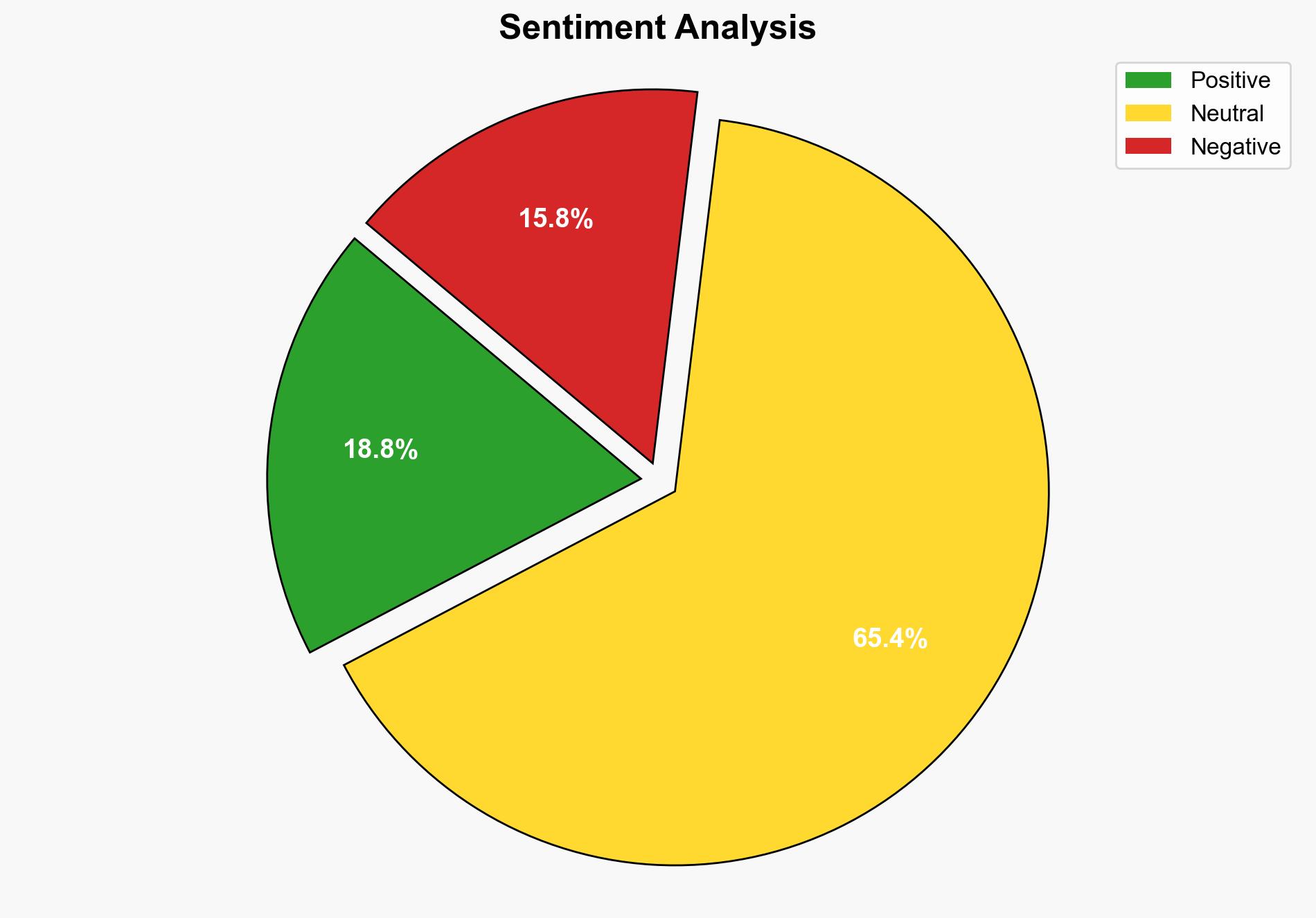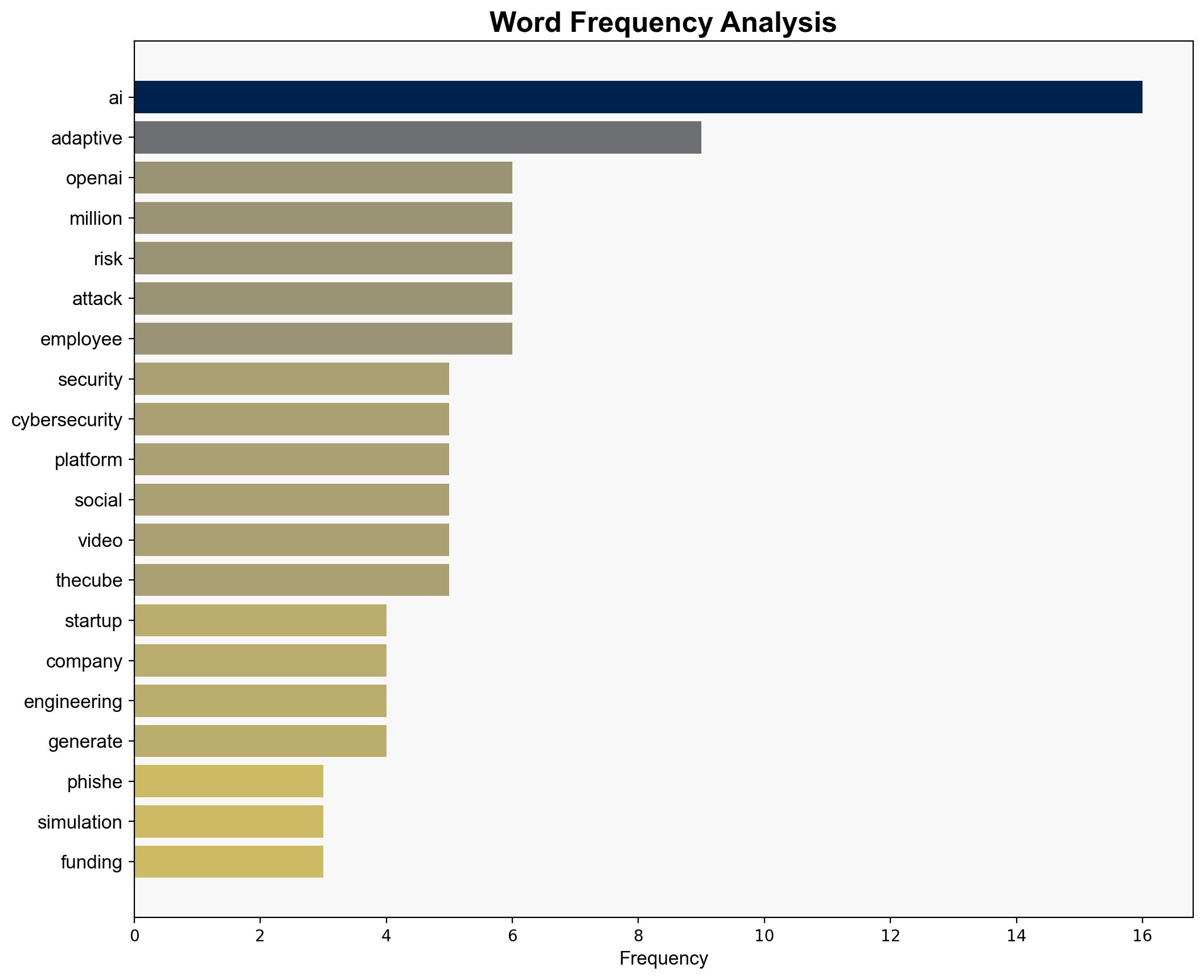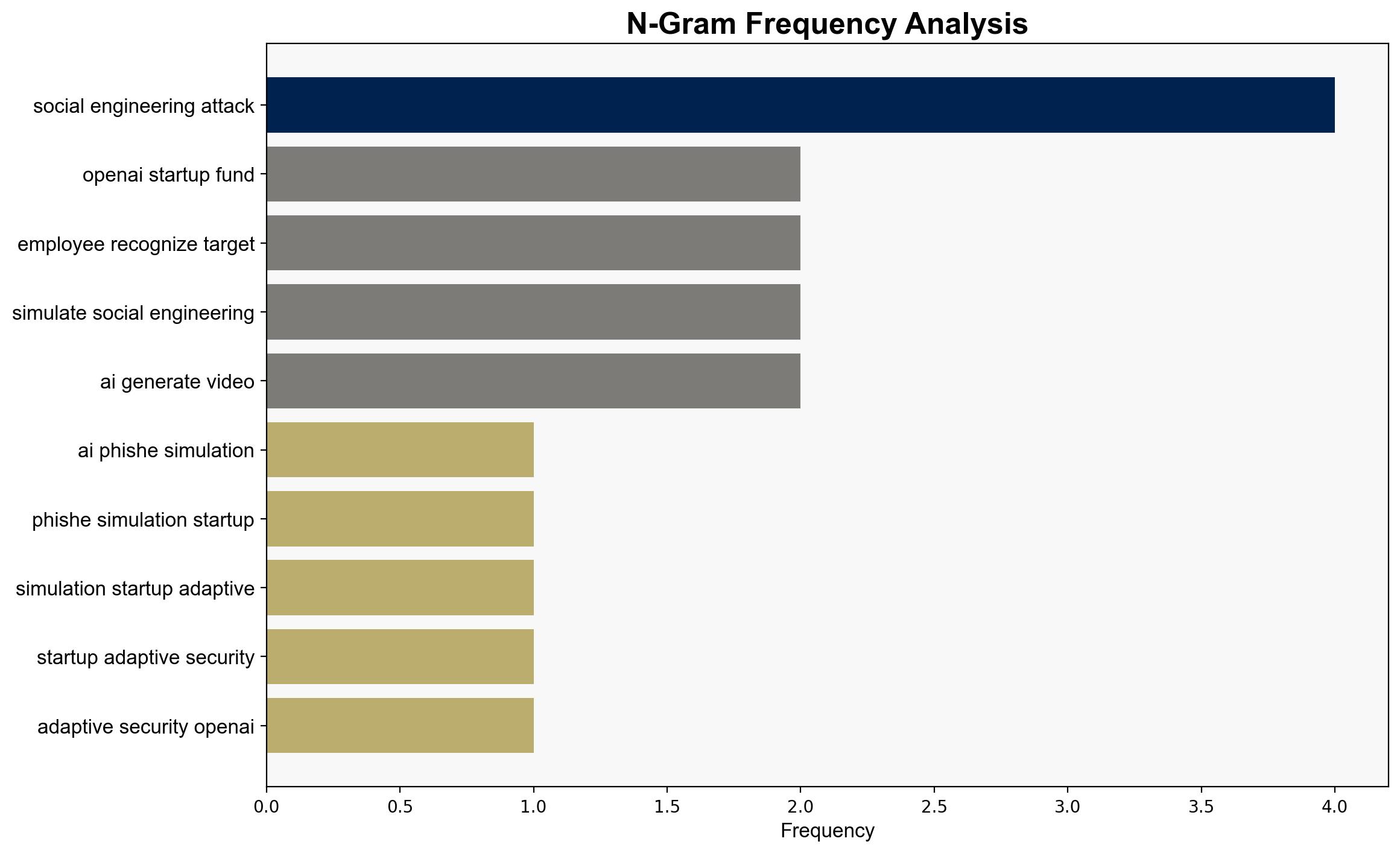AI phishing simulation startup Adaptive Security gets OpenAI funding boost – SiliconANGLE News
Published on: 2025-09-09
Intelligence Report: AI phishing simulation startup Adaptive Security gets OpenAI funding boost – SiliconANGLE News
1. BLUF (Bottom Line Up Front)
Adaptive Security, a startup focusing on AI-driven phishing simulations, has received additional funding from OpenAI. This investment underscores the growing importance of AI in cybersecurity, particularly in combating AI-generated social engineering threats. The most supported hypothesis suggests that this funding will enhance Adaptive Security’s capabilities to address emerging AI-driven cyber threats. Confidence level: Moderate. Recommended action: Monitor Adaptive Security’s developments and evaluate potential partnerships or technology integrations to bolster cybersecurity defenses.
2. Competing Hypotheses
Hypothesis 1: OpenAI’s investment in Adaptive Security is primarily driven by a strategic interest in advancing AI-based cybersecurity solutions to counteract threats posed by AI-generated social engineering attacks.
Hypothesis 2: The investment is a tactical move by OpenAI to diversify its portfolio and capitalize on the growing market for cybersecurity solutions, with less emphasis on the specific threat of AI-generated attacks.
3. Key Assumptions and Red Flags
Assumptions:
– OpenAI’s investment is assumed to be strategically aligned with its broader mission to ensure safe AI development.
– Adaptive Security’s technology is presumed effective against AI-generated threats.
Red Flags:
– Lack of disclosure on the exact amount invested by OpenAI raises questions about the scale of commitment.
– Potential over-reliance on AI-driven solutions without addressing fundamental cybersecurity practices.
4. Implications and Strategic Risks
The integration of AI into cybersecurity presents both opportunities and risks. While AI can enhance threat detection and response, it also introduces new vulnerabilities, particularly if adversaries leverage similar technologies. The economic implications include increased investment in AI-driven security solutions, while geopolitical risks involve the potential for state-sponsored AI attacks. Psychologically, the reliance on AI may erode trust in traditional security measures.
5. Recommendations and Outlook
- Monitor Adaptive Security’s technological advancements and consider strategic alliances to enhance cybersecurity infrastructure.
- Scenario-based projections:
- Best Case: Adaptive Security’s solutions significantly reduce AI-driven phishing attacks, setting industry standards.
- Worst Case: AI-driven threats evolve faster than defensive measures, leading to widespread security breaches.
- Most Likely: Incremental improvements in cybersecurity posture, with ongoing challenges from sophisticated AI threats.
6. Key Individuals and Entities
– Brian Long (Adaptive Security)
– Sam Altman (OpenAI)
– Marco Rubio (mentioned in context of AI-generated threats)
7. Thematic Tags
national security threats, cybersecurity, counter-terrorism, regional focus




